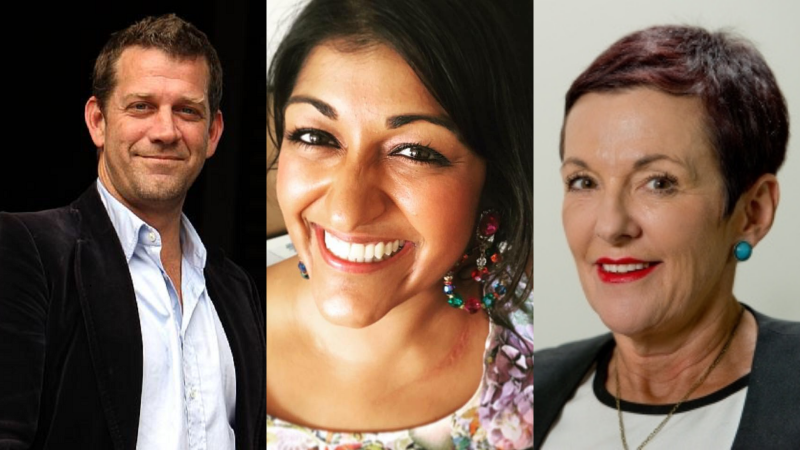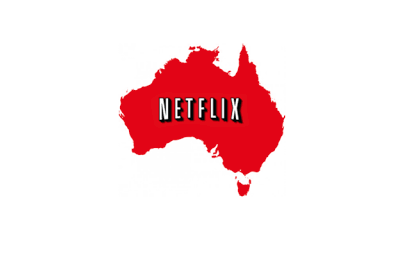TV content quota changes mean networks and streaming platforms are ‘let off the hook’: screen industry
The screen industry has rallied against the Morrison government’s overhaul of the quota system for free-to-air TV networks, drawing attention to the “power imbalance” between the businesses making local content and those buying and broadcasting it.
The TV networks roundly applauded the changed announced yesterday by Communications Minister Paul Fletcher, which involve the scrapping of children’s content quotas in favour of a ‘simplified’ system that allows broadcasters to pick and choose the types of Australian content they air to fulfil their ongoing obligations.
TV companies will still have to broadcast 55% local content between 6am and midnight, and 1,460 hours of Australian content each year on their multi-channels. Subscription TV businesses like Foxtel, meanwhile, will be able to halve their spend on local content, with the requirement dropping from 10% to 5% from July next year.

(L-R) Rhys Muldoon, Mithila Gupta, and Kate Carnell
In a virtual event held yesterday afternoon, following the government’s announcement, screenwriter Mithila Gupta asked: “If we just become a backdrop for international productions, what will happen to our voice? What will happen to our national identity?”
Actor, writer and director Rhys Muldoon said the government’s announcement “makes it pretty clear that they’ve listened to big business and they’ve listened to the commercial broadcasters and the streamers”, who have been “let off the hook”.
“Obviously the commercial broadcasters were let off with the Australian content quota rule and now they’re trying to continue that on and the streamers are not wanting to play ball at all with Australian content quotas,” he said.
“Currently, most of those massive streamers as in your Amazons and your Netflix, aren’t paying any tax at all, or very little tax. And the only way we can get any sort of benefit as a nation from those streamers is actually to have Australian content.
“Purely by legislation, we can get some benefit out of those streamers who are taking so much economically from the country, but they aren’t putting that much back.”
Amazon has not paid much tax in Australia since establishing a presence locally, with a tax bill of just over $20m on revenues of more than $1bn in 2018, for example. The same goes for Netflix, which had an effective tax rate of 0.5% in 2018, paying $341,793 in tax on estimated local revenues between $600m and $1bn.
As part of the changes, the streaming giants – including Netflix and Amazon Prime – will not be faced with content quotas, but will have to start disclosing their investment in local content to the industry watchdog.

Netflix and other streaming platforms will continue to not be bound by quotas
Former Liberal Party politician and current Australian Small Business and Family Enterprise Ombudsman, Kate Carnell, added that she was concerned with the lack of recognition of the power imbalance between the small businesses that create content and those profiting off of it.
“Where, in my view, we’ve still got a lot of work to do, is the lack of seeming understanding of the dilemma of small versus large,” she said.
“Of the dilemma of small businesses having to do business in a situation where there is a significant power imbalance between the broadcasters, between the entities that are buying the content [and] showing the content, and the small businesses that are making the content.”
Carnell welcomed the change to the producer offset, which allows producers to receive a partial tax refund for the money spent on production, and will now be set at 30% for both domestic films and TV production.
But she was concerned about Minister Fletcher’s comments about the impact of the improved offset, in which he said: “Increasing the offset to 30% for television will mean additional funding for Australian television production – and in turn support higher production values and programs with a better prospect of being sold into the global content market, taking advantage of the opportunity created by the explosion of streaming video services like Netflix, Disney+, Stan and Amazon Prime.”
“It’s good to see that the producer offset will be moved to 30% for television, that’s a good thing,” Carnell said.
“What’s not a good thing, in my view, is the sort of comments around that in the press release that talk about … that that will allow higher value productions, which are important, that can be sold overseas. That’s good, but it’s not what the whole industry looks like.”

Deaner, the CEO of Screen Producers Australia
Under the new system, each type of local content is assigned a points value and a broadcaster has an annual quota of 250 points. They can meet that threshold with any mix of content, with the condition that only 50 points of commissioned documentaries will count towards their total.
“It’s good that the sub-quotas that were temporarily suspended are back from the 1st of January,” Carnell added.
“I’m not sure about the points system that’s being talked about here, and what that will actually do to good quality Australian content. It would be unfortunate if it all became one sort of Australian content, whether it be panel shows or reality TV.”
Screen Producers Australia’s chief executive, Matthew Deaner, was even more sceptical.
“Deregulation of legacy platforms without a transition plan into regulation of new platforms creates a disjointed and incomplete policy response that tinkers around the edges, appears to have been driven by old-world thinking and has scant regard to the future of Australian screen content,” he said.
“A once in a generation chance to reset the foundations for Australian stories for future generations and bring regulation into the 21st century has been presented to the Government in a unified way by the screen industry and the response presented today falls short and needs rethinking.
“As soon as the policy spotlight is off streaming services, there will be no incentive for them to commission in this market. Given the regulation outlined in other territories including across Europe and North America, Australia urgently needs a timeframe for transitioning streaming platforms into a regulated environment and without this, in the long run, we will become a backwater for investment.”
Unsurprisingly, shadow Communications Minister, Michelle Rowland, and shadow Arts Minister, Tony Burke, agreed.
“For commercial TV, children’s content obligations are watered down. For Foxtel, content obligations has been halved. For streaming providers, there remains no obligation at all. That leaves just the ABC – which has been the target of constant Liberal cuts over the last seven years,” they said in a statement.
“This government talks a big game about levelling the playing field with the so-called ‘digital giants’ but it has baulked at actually doing so.”
The TV bosses conversely said the “vital” reform was “a win for audiences, a win for networks and a win for the local production sector”.
Contact the journalist:
Have more information on the article? Want to share an opinion? Just want to reach out? Email Brittney on brittney@mumbrella.com.au or get in touch via LinkedIn.



 Linkedin
Linkedin